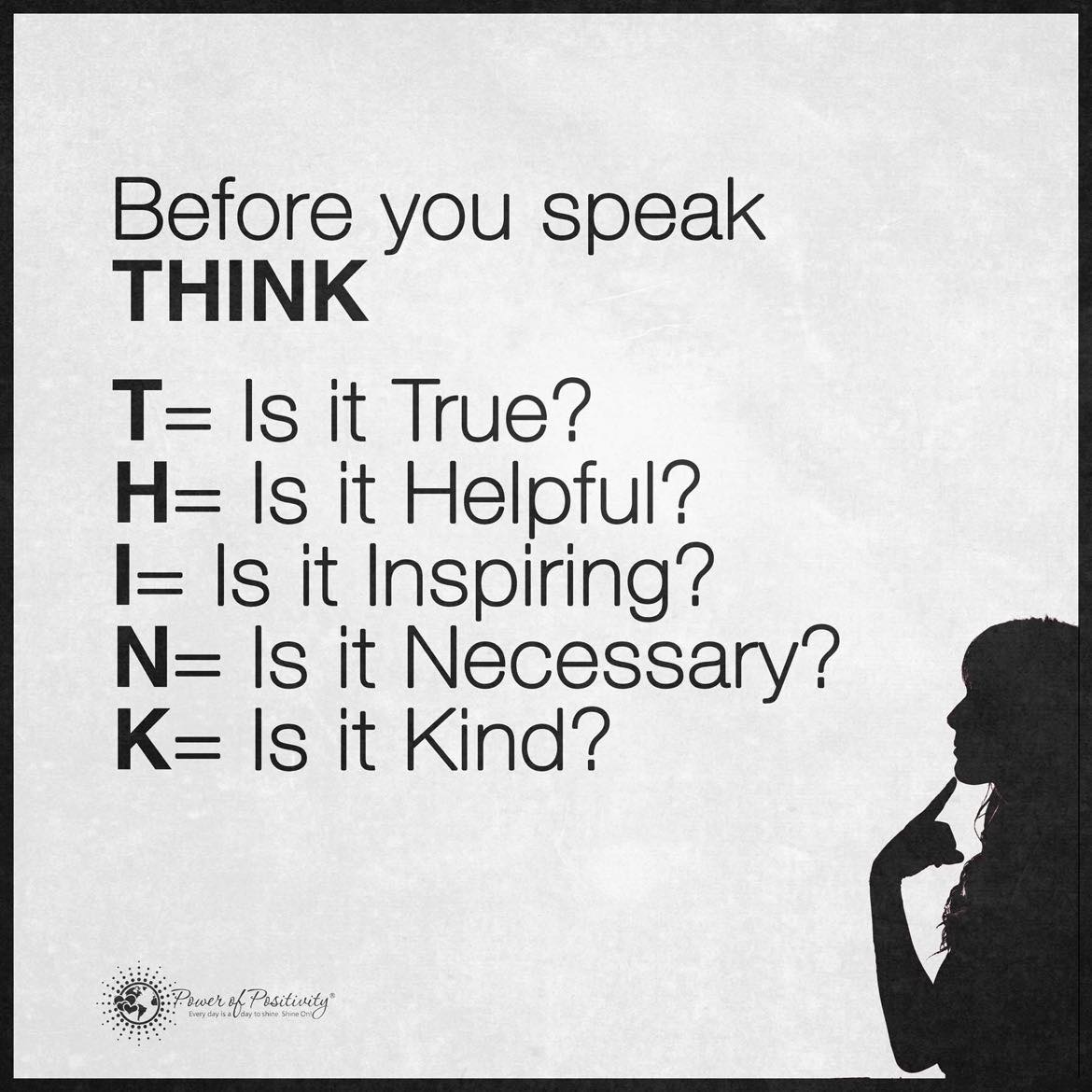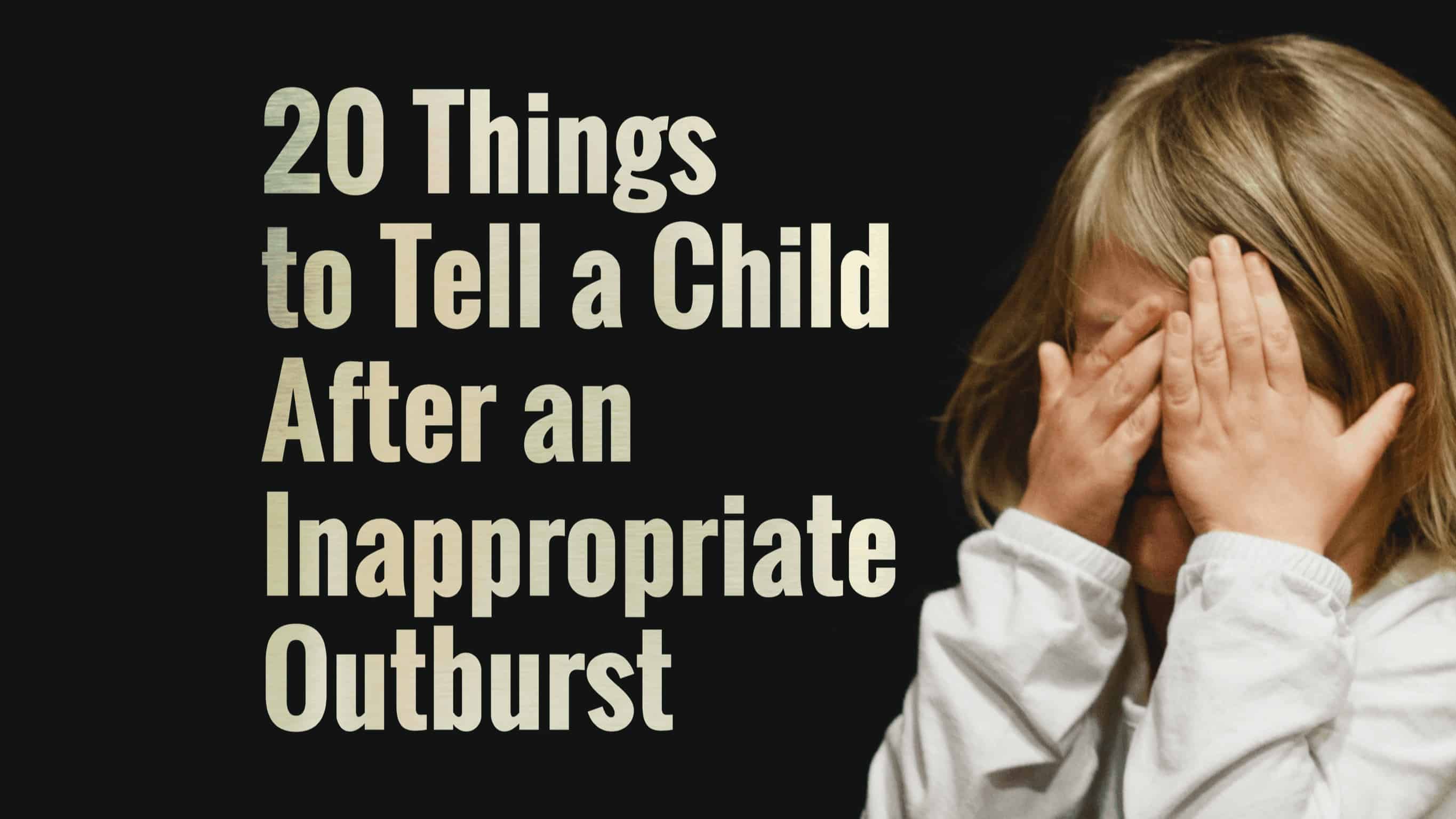Children are still learning to handle their emotions, so it’s normal to have an inappropriate outburst occasionally. Even adults slip up sometimes, so we can’t expect children to react to their feelings appropriately each time. When kids start feeling angry, the emotion can escalate quickly, leading to outbursts and tantrums.
While it might be tempting to give in to your child’s demands, you shouldn’t reward the behavior. Likewise, you shouldn’t lose your temper, use intimidation, or overly punish them, either. Set an example that shows they won’t always get their way and that lashing out doesn’t help.
Talking to your child after an inappropriate outburst is the best option available. They are still learning to handle emotions, and they need your guidance along the way. The way that you react to their emotional eruption teaches your child more than anything else will.
Twenty Things to Tell a Child After an Inappropriate Outburst
If you don’t know what to say to your child, use some of these phrases to help get you started. You’ll quickly realize that talking to your child helps more than any other method after an outburst. As you talk to your child, remember that you are still learning, too.
 1. Let’s take some deep breaths together and try to relax.
1. Let’s take some deep breaths together and try to relax.
Teaching your child healthy ways to cope can make all the difference the next time they feel overwhelmed. Show them how to take deep breaths in and out, and teach them to relax their body as they do it. By setting this example, you offer a new solution to handling their emotions.
2. Your behavior is upsetting me, and I need some time to myself.
This phrase is beneficial to the situation in two ways. First, it shows your child that their behavior negatively affects those around them. When they see that they hurt your feelings and upset you, they might remember that next time and refrain from having a tantrum.
Secondly, telling them that you need time to calm down sets a positive example for them. The child learns that taking a break to work through their emotions is beneficial.
3. I wish I could help you calm down, but maybe laying down will help.
Your child must learn to calm themselves down, especially when they’ve lost control. Tell them that you wish you could help them, and then offer a solution for how they can recover. Suggest that they lie down, as that will help them gather their thoughts and emotions.
Don’t leave them alone during this time, however. You want to give the child their distance but stay nearby so that they don’t feel isolated.
4. Come and find me when you’re not as upset anymore.
Sometimes the outburst gets so bad that you have to walk away. If that happens, let the child know that they can come and find you when they have calmed down a little. By using this phrase, you’re letting them know that you won’t tolerate their behavior but that you’re there when they want to behave differently.
5. After the way you behaved, I need to calm down. We will talk later.
Letting your child know that their outburst upset you can help them understand the consequences of their behavior. If you need a chance to calm down, be honest about it. However, make sure your child knows that they aren’t off the hook for how they decided to act.
6. I know you’re mad, and I sometimes feel that way, too.
Parents sometimes minimize their child’s feelings by telling them to stop or saying it’s not a big deal. Rather than making your child feel like their feelings are wrong, try using this phrase instead. Validate your child’s feelings by telling them that you know how they feel.
Then, further the discussion by telling them that you sometimes feel angry, too. When the child knows that you also get those feelings, they’ll recognize that what they’re feeling is okay. Once they know that it’s a normal feeling, they’ll have an easier time controlling it next time.
7. It’s okay to be upset, but saying mean things isn’t acceptable.
Being clear with your child after an emotional eruption is one of the best things you can do. Be sure to tell them that their feeling was okay, but it’s their behavior that upset you. You don’t want to shame your child for being upset, but you do want to let them know what’s appropriate.
Reestablish your expectations, and consider following your statement with something they can do next time. You should also have them apologize for the name-calling and suggest they explain why they are upset instead.
8. I’d like to help you, but your outburst is upsetting me, too.
Let your child know that when they react this way, it makes it hard for you to help them. They likely want you to help them get past their overwhelming feelings, so let them know that you want to. When they realize that they are making it hard for you to do anything, they might calm down.
9. Do you want to solve this now or later?
This question lets your child know that you will be talking about the situation, but it gives them a choice. They might want a little more time to calm down before talking, and that is okay. Other times, they might want to talk right away.
By letting them choose when to have the conversation gives them a little responsibility. Set a time to talk, and stick to the plan. This way, you also form a connection, making the discussion easier and more effective.
10. I’d like you to tell me what is making you so upset.
Finding out the cause of the child’s reaction can help you handle their behavior. Most children won’t tell you why they are upset until they’ve calmed down a little, so make sure you give them that chance.
Once they’re calm, ask them to use their words to explain what’s wrong. When you help your child put their emotions into words, you can help them solve the problem in a better way.
 11. I understand that you’re frustrated, but behaving that way only results in a consequence.
11. I understand that you’re frustrated, but behaving that way only results in a consequence.
Make sure your child knows that their feeling isn’t the issue in this situation. Validate their feeling, but reinforce that the way they reacted wasn’t appropriate. When you use this phrase, the child will find a different way to handle it next time.
12. What ideas do you have for solving this problem?
Ask this question, but don’t expect an answer right away. Sit silently until the child comes up with an answer. If they don’t come up with anything or change the subject, ask it again and see if they have any ideas.
This method teaches new ways of thinking and helps the child develop the skills to make decisions in the future. If they don’t come up with anything after a while, suggest a few ideas and ask them to give their input. Not only does this help build their skills, but it also reaffirms that the way they chose to react wasn’t acceptable.
13. I won’t give in to this behavior and your angry reactions.
If your child has tantrums when they want to get their way, don’t give in. It might be tempting to give them what they want to stop the outburst, but it only worsens the problem long-term. Firmly tell your child that their behavior will not cause you to give in.
14. You can feel any way you want, but you don’t have to react this way.
Teach the child that it is okay to express their emotions, but make it clear that they choose their reaction. By telling them that they don’t have to behave that way, you help them understand that they have choices in how they respond. It also teaches the child that while their emotion is valid, they cannot act inappropriately.
15. It sounds like your feelings were hurt, and you got angry.
When your child talks to you about why they are upset, it helps when they know you understand. Help them put words to the emotion if they struggle to describe it, but mostly let them do the talking. If a child can identify their emotion, it is easier to handle and react appropriately.
16. Screaming doesn’t help me understand what’s wrong, so please use words.
State the ground rules right away by explaining that screaming isn’t helpful. Don’t make threats, but be firm when you say that screaming won’t solve the problem. Follow it up by asking the child to use their words instead so that you can help them.
17. You are losing privileges because of the way you chose to behave.
If the child loses privileges, make sure they know why they are in trouble. Don’t let the child think they are in trouble for being angry or frustrated.
They need to know that the way they chose to react is the reason for the loss of privileges. When you handle it this way, the child learns that they can choose to react differently next time.
18. You’re showing me that you need to take a break.
Teach the child that it’s okay to take a break and walk away from a situation. They can go to a place they feel safe so that they can work on calming down.
19. What can I do for you right now?
By asking your child what you can do for them, they’ll understand that you’re there for them. They’ll be more willing to talk about the problem and listen to suggestions. When a child feels understood, they are more likely to react appropriately next time.
20. Let’s go for a walk together.
Going for a walk can help the child calm down and process their thoughts. When they’re ready to talk, you can hear their side of things and understand what was so upsetting. You can also use this time to discuss more positive ways they can express emotion in the future.
 Final Thoughts on Things to Tell a Child After an Inappropriate Outburst
Final Thoughts on Things to Tell a Child After an Inappropriate Outburst
Children are still learning to manage their emotions, and an inappropriate outburst will happen sometimes. Use the tantrum as a chance to teach your child and improve their skills.
If it helps, remember that adults sometimes don’t react appropriately, either. A child won’t be perfect when handling upsetting situations, but you can use it as a learning opportunity for better behavior next time.




















